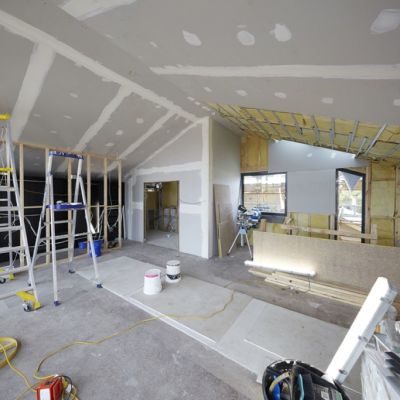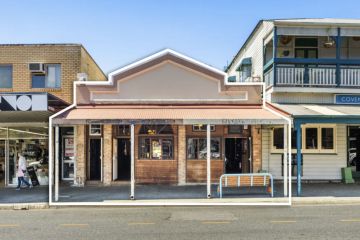The modest type of housing where rents have soared
Asking rents have soared even for the most modest properties in recent years, putting pressure on tenants in a cost-of-living crisis.
Rents for one-bedroom apartments were relatively stable in the years leading up to the pandemic as a wave of new apartment construction kept a lid on how much landlords could charge, but they have jumped since.
Landlords ask $675 a week in rent for the median one-bedroom unit in Sydney, as of June – up from $470 a decade earlier, Domain figures show.
In Melbourne, the asking rent is $495 a week for the typical one-bedder, up from $330 a decade ago.
Asking rents have also soared in Brisbane (to $530 a week from $325) and Perth (to $542.50 from $325).
The figures come as the federal government moves to make it easier for renters to buy their first homes by bringing forward the expansion of its 5 per cent deposit scheme, which from October will be open to first home buyers earning any income. Property price caps are also set to increase under the scheme.
But rising rents are proving a challenge to hopeful first home savers.
Domain chief of research and economics Dr Nicola Powell said rents changed little between 2015 and the start of the pandemic due to the elevated level of apartment construction in major cities.
Next, more people moved into smaller or single-person households and worked remotely, and then the borders reopened and population growth resumed, leading to an imbalance of demand and supply that pushed rents higher.
Then, as workers have returned more to CBD offices, well-located homes – such as small apartments in the inner city or on transport nodes – have been in demand, she said.

“The change in rents would shock those that haven’t been tracking the rental market over the past few years,” Powell said.
“Affordability ceilings are absolutely one of the aspects that’s actually slowing down rental growth … Wages haven’t been able to keep pace with this type of increase in rent.”
Powell agreed this affected renters’ ability to save a home deposit.
“This is one of the barriers to home ownership and this is why we see trends like the increase in the bank of mum and dad or the drastic approaches that some people take that is, move back in with family in order to cost-cut,” she said.
“Ultimately, if you’re paying high rent, and layer that with the high cost of living, and your disposable income after those costs is going to be negligible and it means your pathway to saving is a very challenged one.”
SQM Research managing director Louis Christopher said pre-pandemic rents were largely rising in line with inflation, but COVID-19 created a rapid change in how many, and what type of, dwellings were in demand.
“That surge in demand [once borders opened] combined with a relatively restricted supply period meant that rents were going to rise fairly significantly, and they have,” he said.
He thought the days of 20 per cent annual rent increases were over but that rents remain elevated compared to 2020 levels.
He expects a wave of renters to become first home buyers over the next six months, taking advantage of the government’s help.
“We’ve still got a rental crisis on our hands, rental prices are still elevated, vacancy rates are still very tight, which means it’s still very tough to go out there and find a rental property,” he said. “Renters have been sick of the rental rises they’ve experienced and they’ve been looking to get out.”
He thought this would put upward pressure on dwelling prices but may provide some relief in the rental market.
National spokesperson for Everybody’s Home Maiy Azize said previous generations had been able to depend on the rental market being somewhat predictable, which enabled them to save. But large rent increases over the past three years had made that harder.
“For people who are saving to buy a home, the rental market just doesn’t offer them any stability or predictability for saving,” she said.
Rising rents are also challenging for the cohort in the most extreme rent stress, the furthest from being able to buy a home, who skip meals, ditch car insurance, and may have to move.
“It’s got a really devastating impact on people who are long-term renters, people who are renting for the rest of their life, because they have to move,” she said.
“[They] move further and further out, a lot of the time that means pulling their kids out of school … People who are really struggling at the lower-income end will do anything to keep a roof over their head.”
She urged the government to invest in social housing and limit rent hikes, pointing to the ACT’s cap on rent increases.
We recommend
We thought you might like
States
Capital Cities
Capital Cities - Rentals
Popular Areas
Allhomes
More
- © 2025, CoStar Group Inc.










